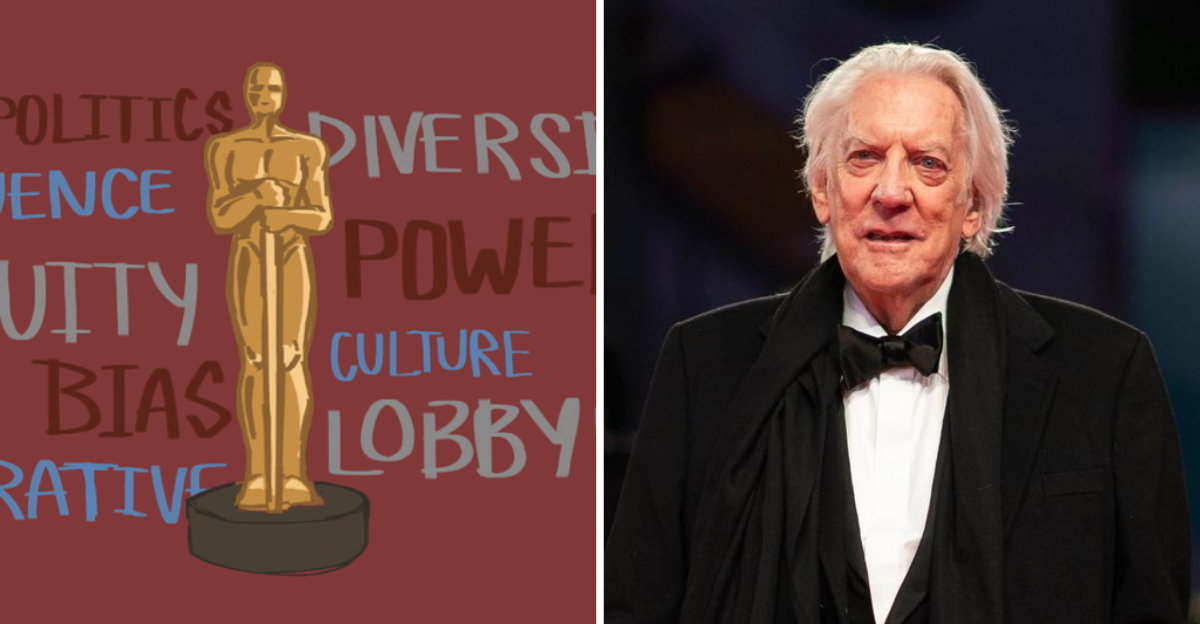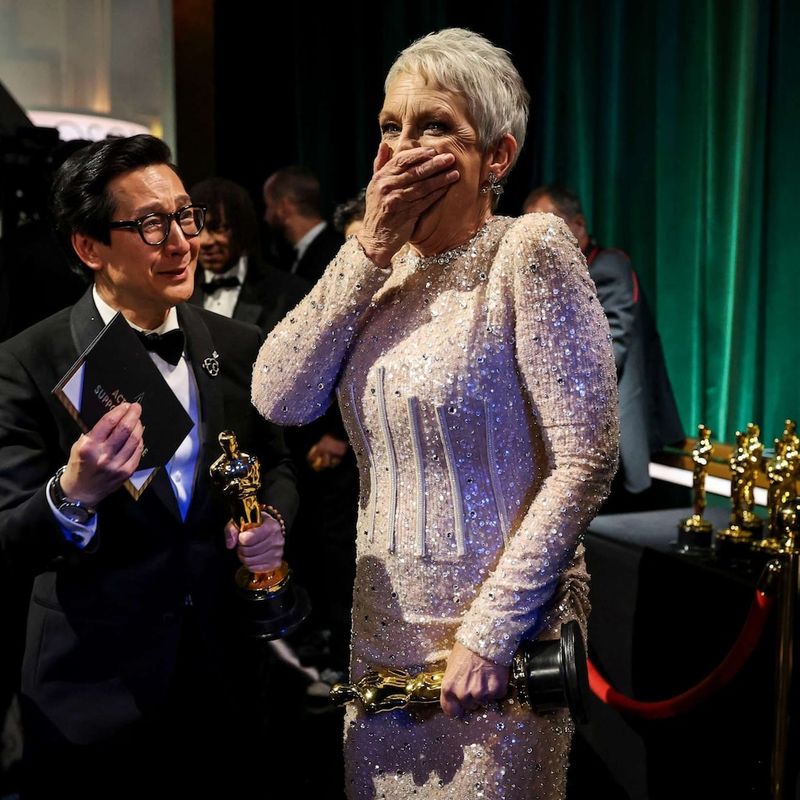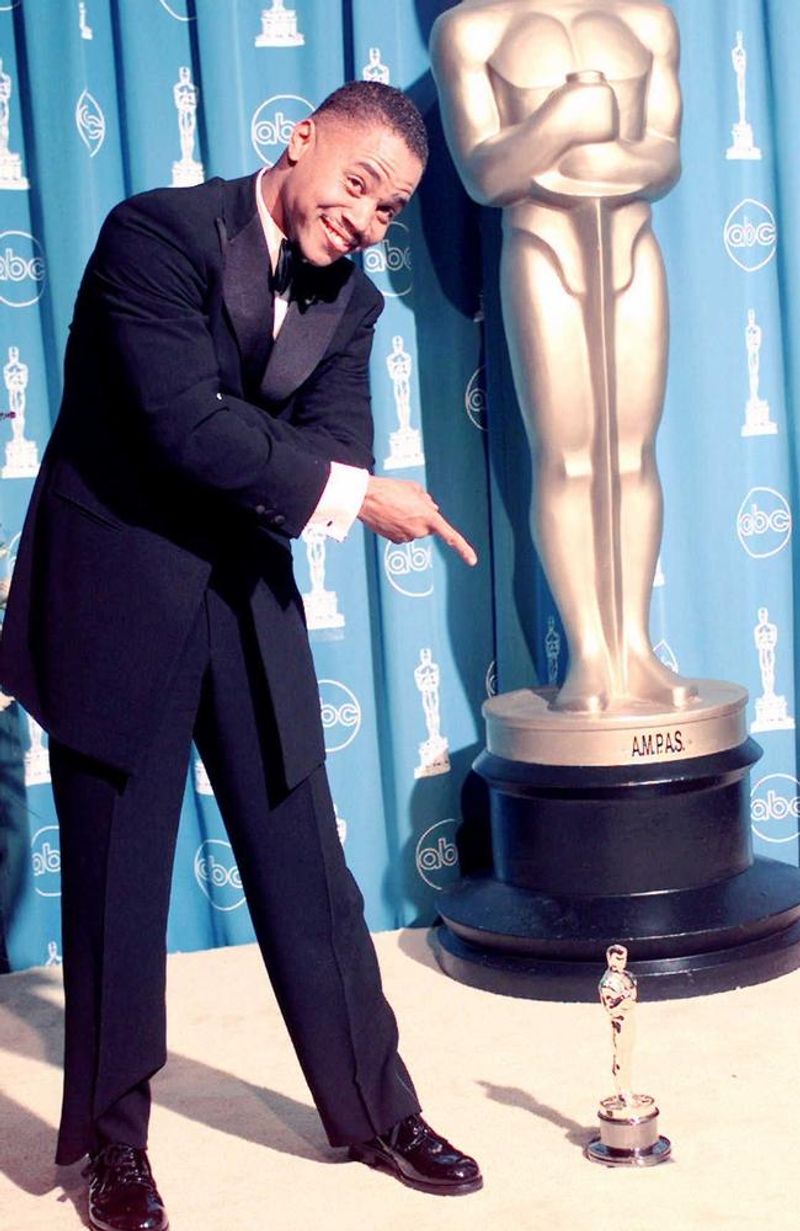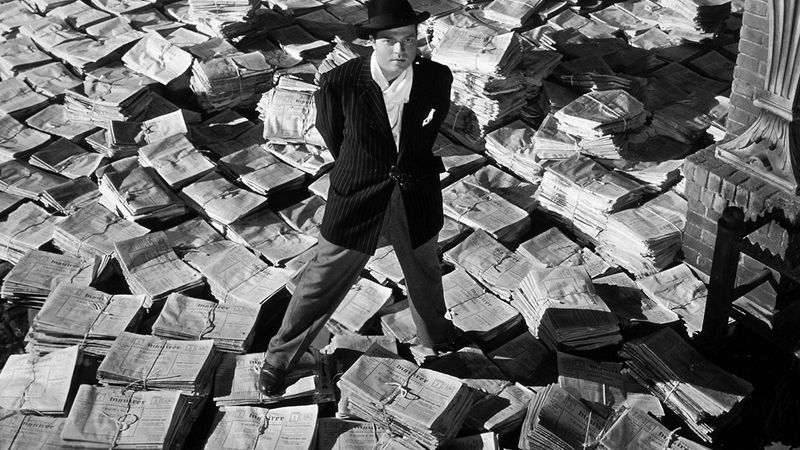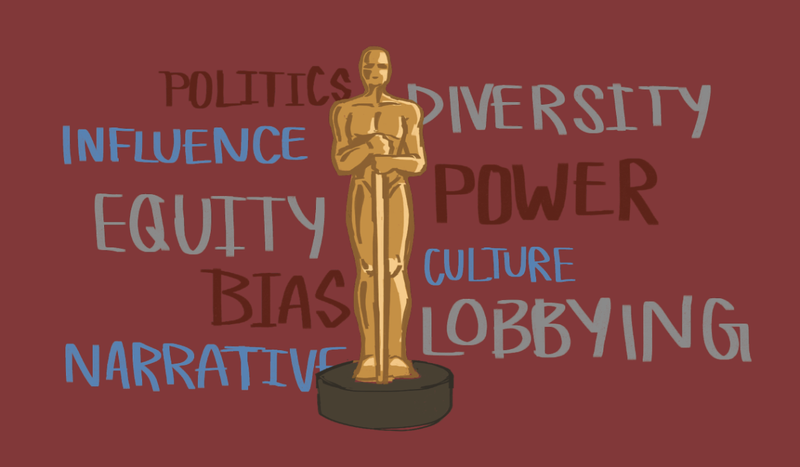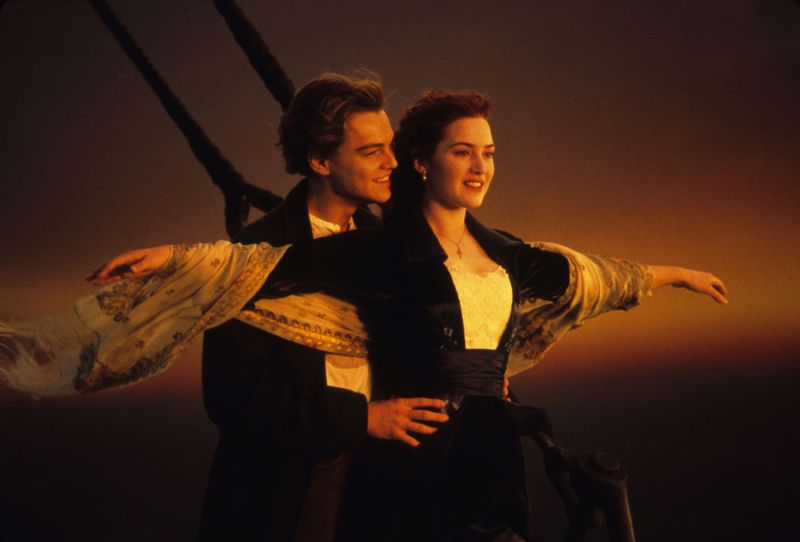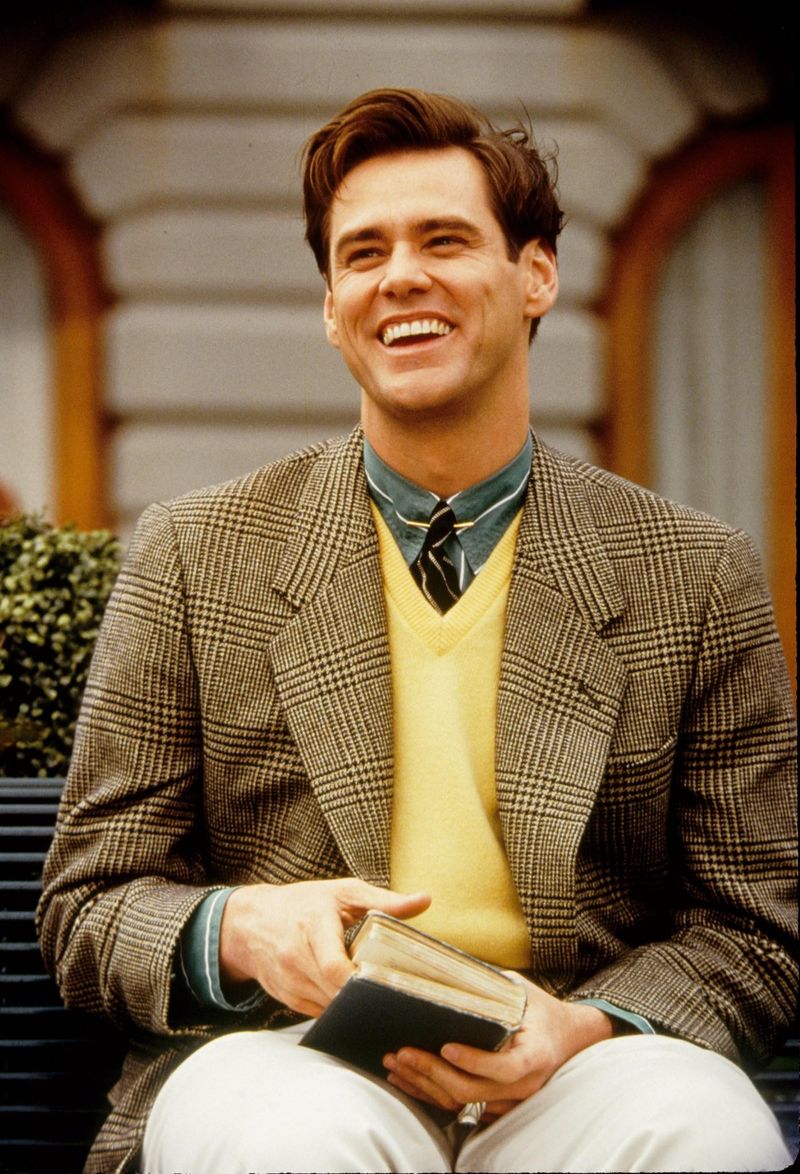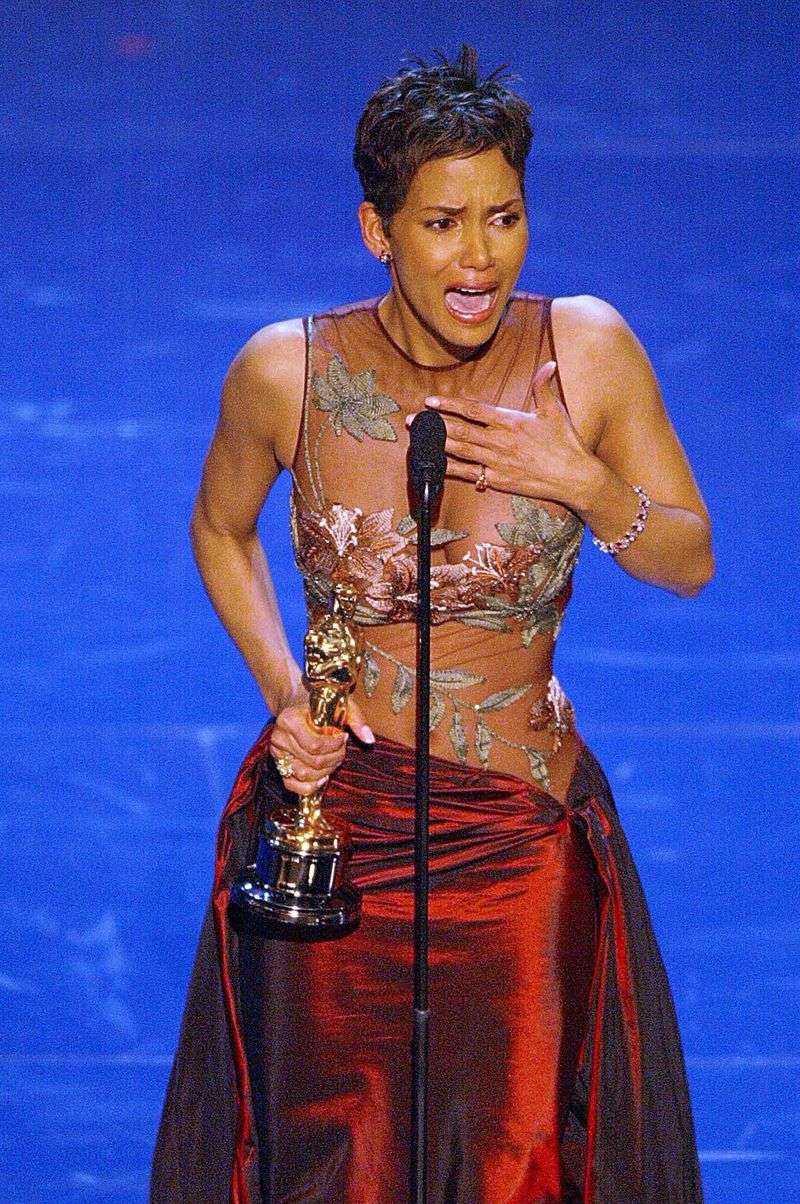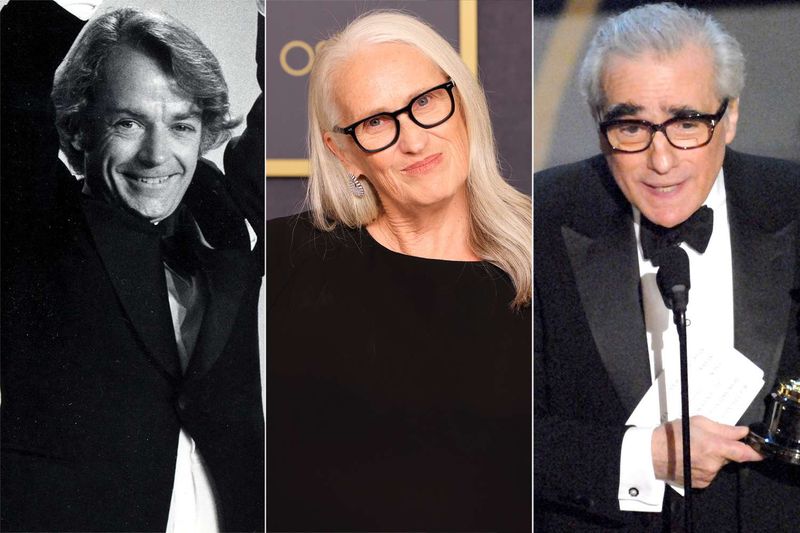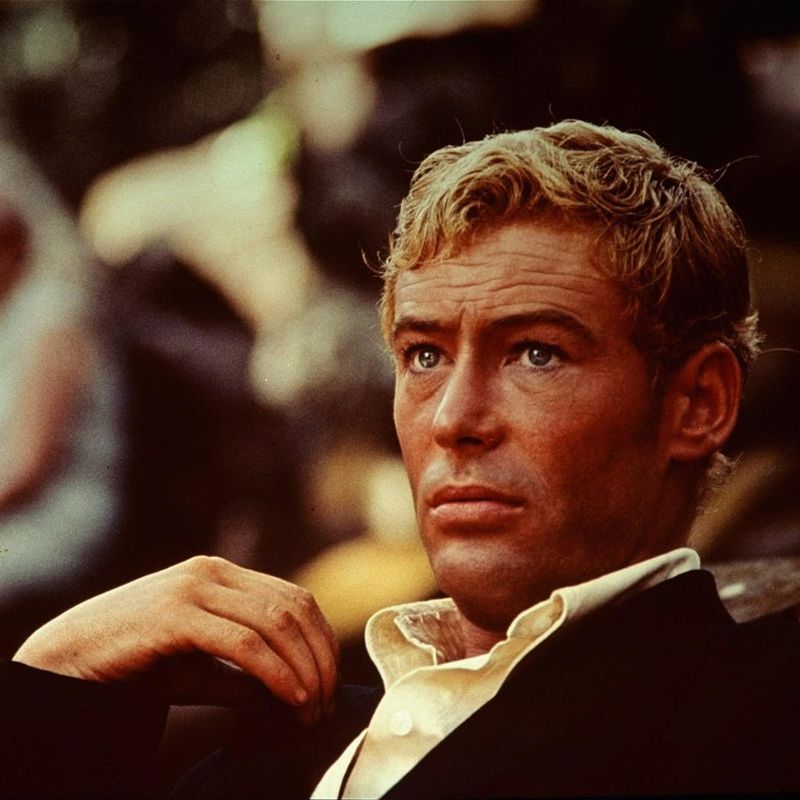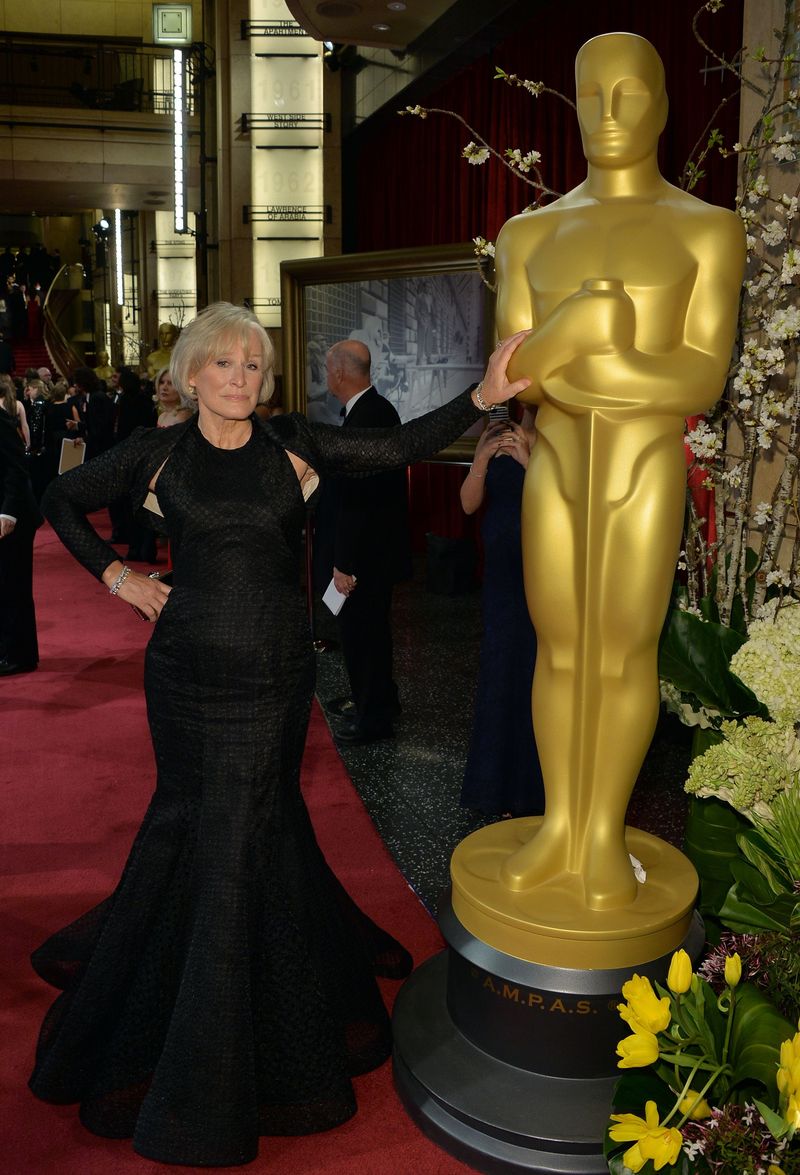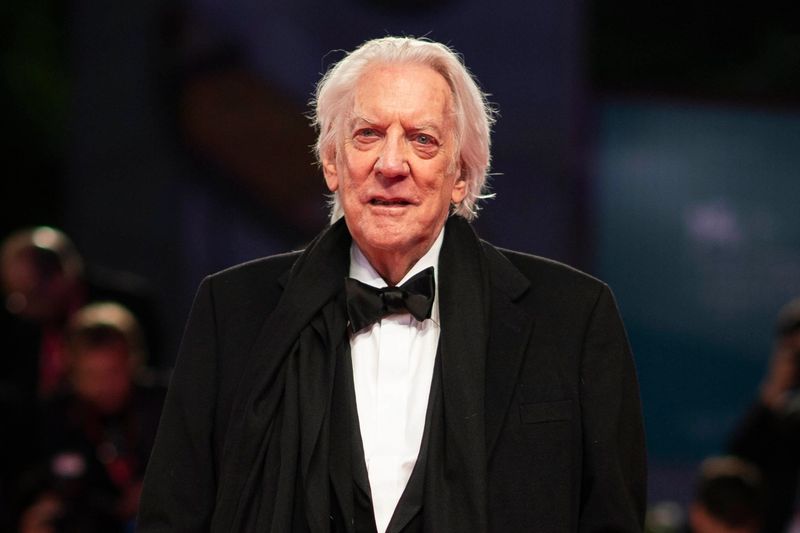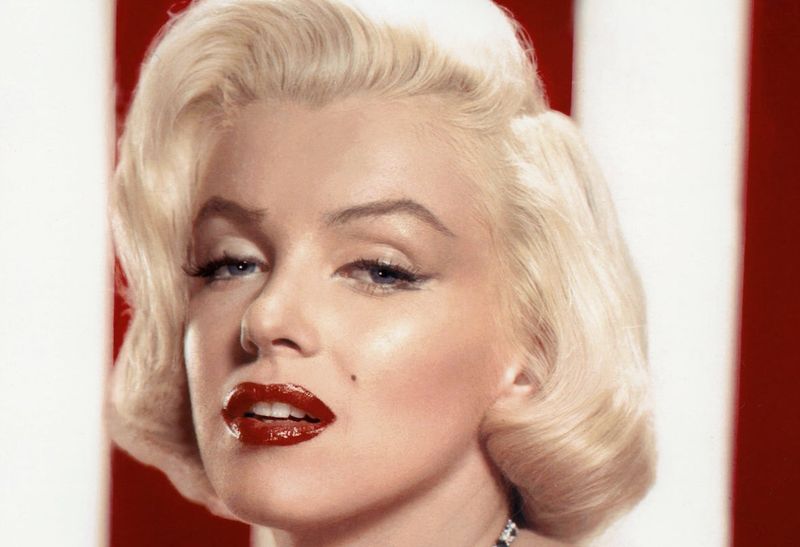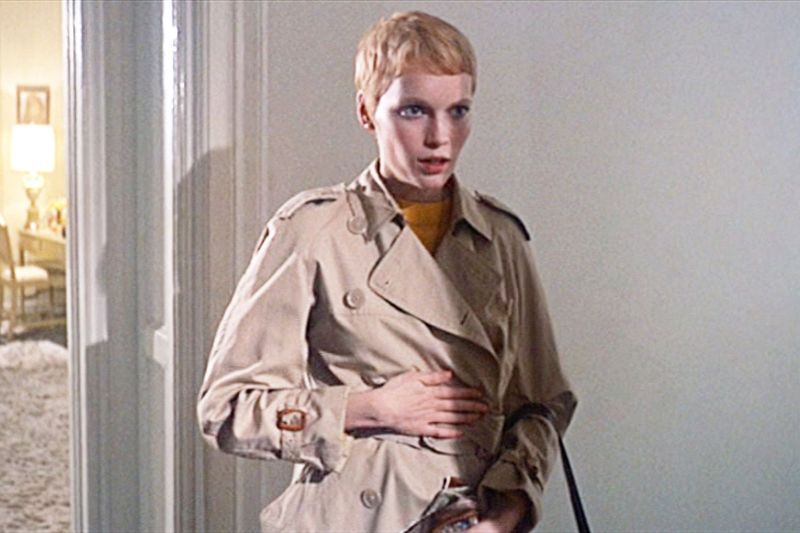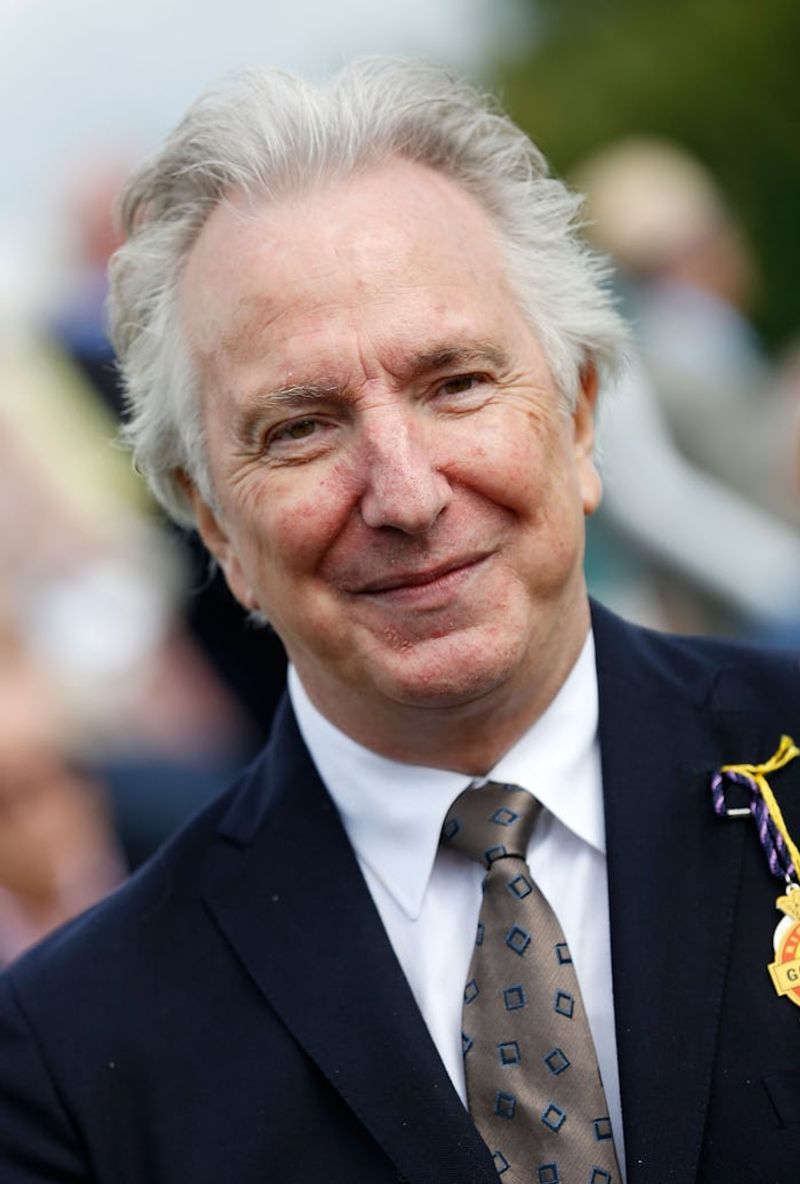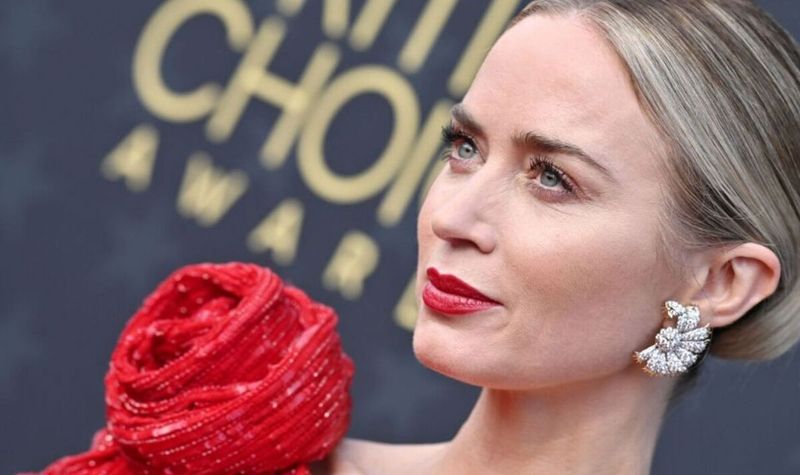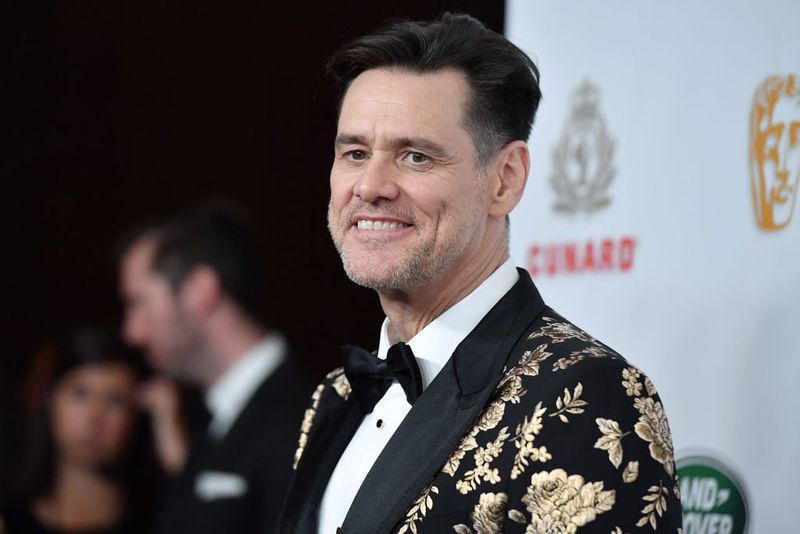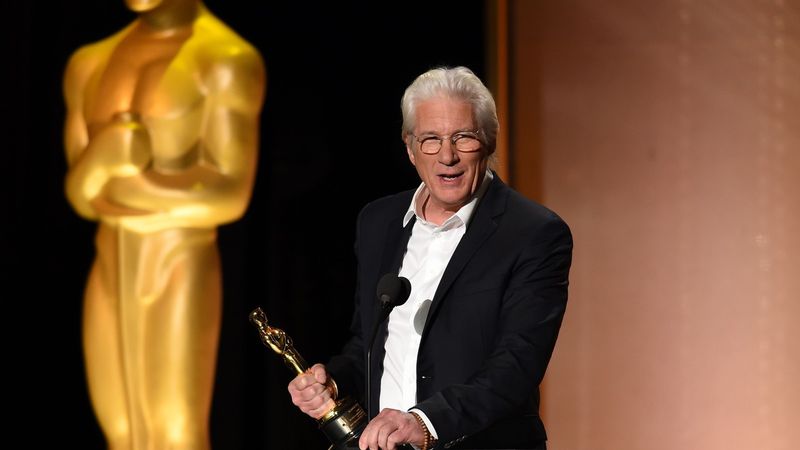The glitz and glamour of the Academy Awards dazzles us every year, but how much do we really know about what goes on behind the golden statuettes? Many of us believe certain ‘truths’ about the Oscars that simply aren’t accurate.
Meanwhile, some of Hollywood’s most brilliant performers have never taken home that coveted award, yet their talent shines brighter than any trophy could reflect.
1. The Best Actor Doesn’t Always Win
Hollywood’s biggest night often crowns performers for reasons beyond pure talent. Studio campaigns costing millions can sway voters more effectively than the performances themselves.
Remember when Roberto Benigni beat Tom Hanks and Edward Norton? Or when Gwyneth Paltrow won over Cate Blanchett’s Elizabeth I? These head-scratchers happen because timing, politics, and personal relationships influence voting.
Academy members often can’t even watch all nominated films before voting. Many admit to checking boxes based on industry buzz rather than critical evaluation of the performances themselves.
2. Oscar Wins Don’t Guarantee Career Success
That golden statuette doesn’t magically open doors to bigger roles and better films. Just ask Cuba Gooding Jr., whose career nosedived after his “Jerry Maguire” win, or F. Murray Abraham, who struggled to find meaningful work after “Amadeus.”
Adrien Brody became the youngest Best Actor winner at 29 for “The Pianist.” Yet his subsequent career has been marked by forgettable roles and direct-to-video releases.
Mira Sorvino’s 1996 Supporting Actress win for “Mighty Aphrodite” similarly failed to launch the stellar career many expected. The “Oscar Curse” isn’t just superstition – it’s a documented phenomenon.
3. The Academy Rarely Rewards Innovation
Groundbreaking filmmaking often goes unrecognized during its time. “Citizen Kane,” now considered the greatest film ever made, lost Best Picture to “How Green Was My Valley.” Stanley Kubrick’s revolutionary “2001: A Space Odyssey” wasn’t even nominated for Best Picture!
Alfred Hitchcock, whose techniques revolutionized cinema, never won a competitive directing Oscar. The visually stunning “Blade Runner” earned just two technical nominations.
When Christopher Nolan’s mind-bending “Inception” lost to “The King’s Speech,” it continued the pattern. The Academy typically rewards safe, conventional filmmaking over artistic risk-taking that pushes boundaries and redefines what cinema can be.
4. Oscar Voting Is Anything But Objective
Academy members aren’t immune to being wooed. Studios spend up to $10 million campaigning for a single film, hosting lavish parties where voters mingle with stars. These campaigns often overshadow the actual quality of performances.
Whisper campaigns can sink a frontrunner’s chances. Remember when Eddie Murphy was the favorite for “Dreamgirls” until negative stories mysteriously circulated right before voting?
Personal relationships matter enormously. Members often vote for friends or people they’ve worked with, regardless of performance quality. The process resembles a high school popularity contest more than an objective evaluation of artistic merit.
5. Blockbusters Can Win Big
The notion that commercial success dooms Oscar chances is simply wrong. “Titanic” sailed away with 11 Oscars while breaking box office records. “The Lord of the Rings: The Return of the King” matched that feat with its own 11 wins.
“Gladiator,” “Forrest Gump,” and “The Silence of the Lambs” were all massive commercial hits that claimed Best Picture. Even superhero films are breaking through, with “Black Panther” earning a historic Best Picture nomination.
While art house darlings do have an advantage, the Academy isn’t completely allergic to popular films. The bias exists but isn’t absolute – massive financial success doesn’t automatically disqualify a film from Oscar glory.
6. Diversity Remains an Oscar Problem
#OscarsSoWhite wasn’t just a hashtag – it highlighted a genuine problem. From 2015-2016, all 20 acting nominations went to white performers, despite standout performances from actors of color.
Women directors face even steeper challenges. Before Kathryn Bigelow’s 2010 win for “The Hurt Locker,” no woman had ever won Best Director. Since then, only two others (Chloé Zhao and Jane Campion) have claimed the prize.
Recent efforts to diversify Academy membership show progress, but the playing field remains uneven. Many outstanding performances and films from underrepresented groups still go unrecognized, revealing systemic biases that persist despite incremental improvements.
7. Comedy Gets No Respect at the Oscars
Make people laugh? Don’t expect Oscar recognition. The Academy consistently favors dramatic performances over comedic ones, regardless of skill or difficulty.
Jim Carrey’s brilliant work in “Eternal Sunshine of the Spotless Mind” and “The Truman Show” earned zero nominations. Bill Murray’s career-defining performance in “Lost in Translation” lost to Sean Penn’s more traditionally dramatic role in “Mystic River.”
The bias is mathematical: since 1970, over 85% of acting Oscars went to dramatic performances. This prejudice ignores that comedy often requires more technical skill and precise timing than dramatic acting. As Charlie Chaplin said, “To truly laugh, you must be able to take your pain and play with it.”
8. Best Picture Winners Often Age Poorly
Time frequently judges films differently than Oscar voters. “Ordinary People” beat Scorsese’s masterpiece “Raging Bull” for Best Picture in 1981. Today, film scholars universally recognize “Raging Bull” as the superior and more influential work.
“Shakespeare in Love” controversially defeated “Saving Private Ryan” in 1999. Two decades later, Spielberg’s war epic remains a cultural touchstone while the costume romance has faded from memory.
“Crash” over “Brokeback Mountain” in 2006? “How Green Was My Valley” over “Citizen Kane”? The list of questionable decisions grows longer each year. Oscar winners often reflect the politics and preferences of their moment rather than lasting artistic merit.
9. Oscar Wins Often Come as Career Compensation
Academy Awards frequently serve as career achievement prizes rather than recognition for the nominated performance. Al Pacino finally won for “Scent of a Woman” after losing for superior work in “The Godfather” films.
Leonardo DiCaprio’s win for “The Revenant” came after multiple snubs for better performances. Julianne Moore’s “Still Alice” Oscar felt like making up for overlooking her in “Far From Heaven” and “Boogie Nights.”
This “we owe you one” mentality creates a backlog of deserving actors waiting their turn. Meanwhile, truly exceptional performances from newcomers or less established actors get overlooked because “they’ll have other chances.” The system rewards patience and longevity over genuine artistic achievement.
10. Oscars Don’t Define Hollywood Legacies
Some of cinema’s most enduring icons never clutched that golden statuette. Cary Grant, the epitome of Hollywood charm, received only two nominations and zero wins. Alfred Hitchcock, whose name became synonymous with an entire genre, went 0-for-5 in directing nominations.
Stanley Kubrick never won Best Director. Neither did Orson Welles. Charlie Chaplin’s competitive Oscar came for music, not acting or directing.
These giants tower over many forgotten Oscar winners in cinema history. Their artistic influence extends far beyond any award could measure. The Academy’s failure to recognize them reveals more about the Oscars’ limitations than about these filmmakers’ abilities.
11. Peter O’Toole: Eight Nominations, Zero Wins
From his sun-scorched debut in “Lawrence of Arabia” to his mischievous aging actor in “Venus,” Peter O’Toole delivered performances of staggering range and depth. His record eight acting nominations without a win stands as one of Oscar’s greatest injustices.
O’Toole’s eyes alone could convey more emotion than most actors manage with their entire bodies. His technical precision combined with raw emotional vulnerability created unforgettable characters that have influenced generations of performers.
When finally offered an honorary Oscar in 2003, O’Toole initially declined, writing that he was “still in the game and might win the lovely bugger outright.” His legacy as one of cinema’s finest actors remains secure, with or without competitive Academy recognition.
12. Glenn Close: The Perpetual Bridesmaid
With eight nominations spanning four decades, Glenn Close holds the unfortunate record for most nominated actress without a win. Her bone-chilling performance in “Fatal Attraction” lost to Cher. Her nuanced work in “Dangerous Liaisons” fell to Jodie Foster.
Close’s versatility astounds – from the manipulative Marquise de Merteuil to the gender-bending Albert Nobbs. Her transformations are complete, her emotional intelligence unmatched.
Her devastating turn in “The Wife” seemed certain to end her losing streak in 2019, until Olivia Colman’s surprise victory extended Close’s wait. Yet her formidable body of work stands as testament to her extraordinary talent, making her Oscar-less status one of Hollywood’s most baffling paradoxes.
13. Donald Sutherland: Never Even Nominated
From chilling villain to compassionate father, Donald Sutherland has embodied over 150 characters across six decades without a single Oscar nomination. His haunting performance in “Ordinary People” helped others win while he was completely overlooked.
Sutherland’s distinctive presence elevated classics like “M*A*S*H,” “Don’t Look Now,” and “Klute.” More recently, his calculating President Snow in “The Hunger Games” reminded audiences of his undiminished power.
The Academy finally awarded him an honorary Oscar in 2017, acknowledging what film lovers always knew – his absence from the nominee lists represented a major blind spot. His son Kiefer’s assessment says it all: “I’m stunned that it’s taken this long for the Academy to recognize him.”
14. Marilyn Monroe: Icon Without Academy Recognition
Behind the platinum blonde image lay a performer of surprising depth and vulnerability. Monroe never received an Oscar nomination despite delivering memorable performances that continue to resonate decades later.
Her comedic timing in “Some Like It Hot” demonstrated masterful precision. Her dramatic work in “The Misfits” revealed layers of pain beneath her glamorous persona. Directors like Billy Wilder and John Huston recognized her talent even as critics dismissed her.
Film historian Sarah Churchwell notes that Monroe “was taken seriously by the most serious directors of her time.” Yet the Academy saw only the bombshell, not the artist. Her cultural impact ultimately transcended any award, proving that lasting influence doesn’t require Oscar validation.
15. Mia Farrow: Snubbed for Decades
Her harrowing performance in “Rosemary’s Baby” alone should have earned Mia Farrow Oscar recognition. Instead, she wasn’t even nominated, beginning a pattern of Academy oversight that would span her entire career.
Farrow’s work in “The Purple Rose of Cairo” and “Hannah and Her Sisters” showcased her exceptional range, moving from ethereal vulnerability to steely determination. Critics consistently praised her nuanced portrayals, yet Oscar nominations never materialized.
Perhaps her unconventional personal life or her focus on smaller, character-driven films contributed to her exclusion. Whatever the reason, Farrow’s filmography stands as a testament to sustained excellence without Academy validation, proving that artistic achievement exists independently of awards recognition.
16. Alan Rickman: The Overlooked Master
That voice – like velvet wrapped around gravel – gave Alan Rickman an instantly recognizable presence. Yet despite creating some of cinema’s most memorable characters, he never received an Oscar nomination.
His terrorist Hans Gruber in “Die Hard” redefined screen villainy. His conflicted Severus Snape captivated a generation of Harry Potter fans. His heartbreaking portrayal of unrequited love in “Sense and Sensibility” revealed his emotional depth.
Fellow actors speak of his extraordinary technique and generosity. Emma Thompson called him “the ultimate ally.” His death in 2016 prompted universal recognition of his brilliance from critics and audiences alike, highlighting the Academy’s failure to acknowledge one of the finest actors of his generation.
17. Steve Buscemi: Character Actor Extraordinaire
Those unforgettable eyes and distinctive voice make Steve Buscemi instantly recognizable, yet the Academy has consistently overlooked his exceptional talent. His work in Coen Brothers classics like “Fargo” and “The Big Lebowski” showcases his unique ability to blend comedy with pathos.
Buscemi’s devastating performance in “Boardwalk Empire” earned him Golden Globe and Emmy recognition but couldn’t crack the Oscar ceiling. His directorial work demonstrates his deep understanding of the craft from multiple angles.
Perhaps his willingness to take unglamorous roles or his character actor status has kept him from Oscar attention. Yet his unforgettable performances have become part of cinema history, proving that Academy recognition isn’t necessary for artistic immortality.
18. Emily Blunt: Consistently Brilliant, Consistently Overlooked
Few modern actresses match Emily Blunt’s versatility. From the ice-queen assistant in “The Devil Wears Prada” to the battle-hardened warrior in “Edge of Tomorrow,” she disappears completely into each role with technical precision and emotional truth.
Her work in “Sicario” as an FBI agent out of her depth demonstrated her ability to convey complex internal struggles with minimal dialogue. Her near-silent performance in “A Quiet Place” communicated volumes through expression alone.
Despite consistent critical acclaim and audience admiration, Oscar nominations have mysteriously eluded her. Blunt approaches each role with intelligence and zero vanity, creating fully realized characters rather than Oscar bait performances, perhaps explaining the Academy’s curious blindness to her extraordinary talent.
19. Jim Carrey: Comic Genius with Dramatic Depths
Behind the rubber-faced comedy lies an actor of remarkable emotional range. Jim Carrey’s transformation in “The Truman Show” from sitcom cheerfulness to existential awakening demonstrated acting of the highest caliber, yet Oscar ignored him.
His work in “Eternal Sunshine of the Spotless Mind” as the heartbroken Joel revealed vulnerability and nuance that transcended his comedic reputation. Critics hailed both performances as breakthrough moments for an actor previously known for broader comedy.
The Academy’s bias against comedic performers likely contributed to Carrey’s exclusion. His willingness to take creative risks and his refusal to play the Hollywood game may have further distanced him from Oscar recognition, though these same qualities have endeared him to audiences worldwide.
20. Richard Gere: Hollywood Star Without Oscar Gold
For over four decades, Richard Gere has maintained leading man status while developing into a nuanced character actor. His work in “Chicago” showcased unexpected musical talents alongside his characteristic charisma, yet Oscar nominations eluded him.
Gere’s performance in “Primal Fear” as an arrogant attorney discovering his moral center revealed his dramatic depths. His later work in smaller films like “Arbitrage” demonstrated his willingness to explore morally complex characters without concern for likability.
Some speculate his outspoken political activism, particularly regarding China and Tibet, may have hurt his Oscar chances. Whatever the reason, Gere continues to deliver compelling performances into his seventies, proving that artistic fulfillment doesn’t require Academy validation.
